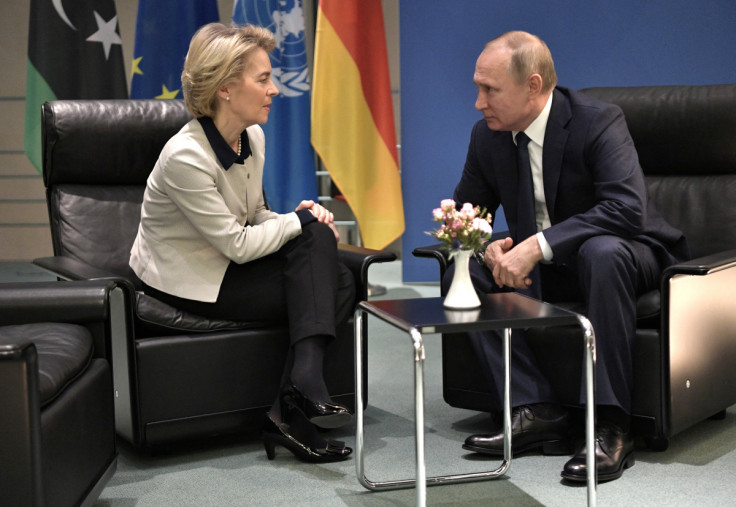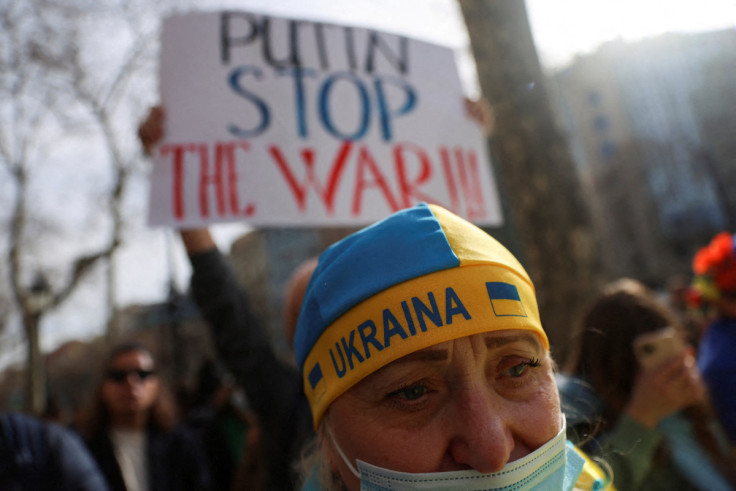EU debates 11 bln euro worth of trade curbs in new Russia sanctions
Representatives of the 27 European Union countries meet in Brussels on Wednesday to discuss a new batch of sanctions against Russia, which the head of the bloc's executive said could cost 11 billion euros ($11.8 bln) in lost trade.

Representatives of the 27 European Union countries meet in Brussels on Wednesday to discuss a new batch of sanctions against Russia, which the head of the bloc's executive said could cost 11 billion euros ($11.8 bln) in lost trade.
The bloc is expected to agree new sanctions to mark the one-year anniversary of Russia's invasion of Ukraine on Feb. 24, but the specific proposals must yet win the unanimous backing of all EU member states.
"We are weakening Russia's ability to maintain its war machine. We have adopted nine packages of sanctions, the Russian economy is shrinking," European Commission President Ursula von der Leyen said. "We need to keep up the pressure," she told the European Parliament ahead of the closed-door talks among the 27 national envoys in Brussels.
"We're talking about 11 billion euro. We are suggesting restrictions on some dual-use and electronic components used in Russian armed systems such as drones and missiles and helicopters," she said, describing the looming 10th sanctions package, which could also target Iran for helping Russia's war.
"There are also hundreds of drones manufactured in Iran, used by Russia, in the battlefield in Ukraine. These Iranian drones kill Ukrainian civilians... so for the first time we are also suggesting sanctions targeting Iranian economic operators including those linked to the Revolutionary Guards."
10TH PACKAGE
The Commission has proposed EU countries should cut four more Russian banks, including the private Alfa-Bank, the online bank Tinkoff and the commercial lender Rosbank from global messaging system SWIFT, two EU diplomatic sources said on condition of anonymity.
Rubber and asphalt would be added to the EU list of barred imports from Russia and the bloc would ban Russia Today's Arabic service from its territory, according to the people, who are familiar with the confidential talks.
Further bans on EU exports to Russia were meant to stifle Moscow's ability to produce arms and equipment deployed against Ukraine.
The sources said they would cover electronic circuits and components, thermal cameras, radios and heavy vehicles, as well as steel and aluminium used in construction and machinery serving industrial and construction purposes.
The Commission also proposed further restrictions on European joint ventures with Russia and Russian nationals sitting on boards in Europe, they added.
The bloc aims to both extend its measures against Russia and close loopholes in existing sanctions, including tighter controls on selling satellite data to China, which the sources said risked being passed on to Russia.
EU nations are also looking at additional reporting obligations to better track Russian assets in Europe as they seek ways to use those frozen under sanctions to finance rebuilding Ukraine from the war.
The EU has so far located around 33.8 billion euros worth of Russian central bank assets on its territory, according to EU officials, from an estimated $300 billion frozen outside of Russia.
Addressing the same session of the European Parliament, the bloc's top diplomat Josep Borrell said EU countries had to supply more arms, more quickly to Ukraine, where the United States and NATO said Russia has started a new offensive. ($1 = 0.9329 euros)

Copyright Thomson Reuters. All rights reserved.





















